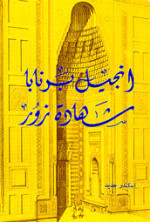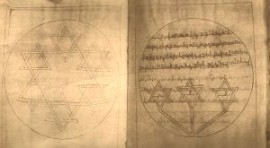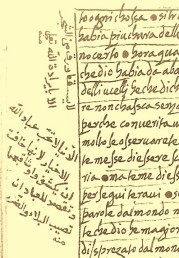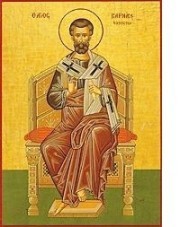The Gospel of Barnabas
This time, the claim of various sectors of Islam is that the apocryphal called Gospel of Barnabas, written between the fourteenth and sixteenth centuries, is the true gospel of Jesus that was lost, and now rediscovered. The reason? In this "gospel" Jesus denies being the Son of God and announces the coming of Muhammad explicitly.
What we know...
Can we know anything for sure about this work? Of course we can!
- The earliest specific known mention of the "Gospel of Barnabas" belongs to the Moorish Ibrahim al-Taybili in the manuscript BNM MS 9653 drawn up in Tunisia, dated 1634 and preserved in Madrid.
- The oldest copy known belongs to the year 1709 (JF Cramer, Amsterdam), is in Italian, and in 1738 somehow went to the National Library in Vienna, where it still remains.
- This "Gospel" establishes the Jubilee celebration every hundred years. This indicates that it may have been written between 1330 and 1343, the only time when it was determined to celebrate the Jubilee every 100 years instead of the traditional 50 years. This happened in Boniface VIII times (Lonsdale Ragg, "Dante and the, Gospel of Barnabas", in: Modern Language Review 3/1907, p. 164).
- This work literally quotes passages from the Divine Comedy of Dante Alighieri (1265-1321), which leads us again to the first half of the fourteenth century as a possible date of composition.
Where and when was it written?
In Moorish documents of the sixteenth century we find traces of the preparation of such a Gospel of these characteristics (see left).
Besides this, the text itself has many historical and geographical inconsistencies that give us clear clues on where and when it was written. For example:
· Chapter 119 speaks of sugar. But sugar did not reach the Mediterranean culture until the Arabs, and after the seventh century.
· Chapter 54 speaks of the "minute" as a fraction of a denarius of gold. In the Roman Empire the denarius was of silver, while the gold minute was a currency used in Spain, centuries later.
· In the description of the day of the last judgment of chapter 121, a notary is seen when taking minutes, a habit that did not appear until the Middle Age.
· Chapter 152 mentions barrels of wine, when wineskins were used until the fourth century and barrels were used first in Italy.
· Many of the OT quotes are from the Vulgate of the fourth century, and as previously mentioned, quotes of Dante appear in Chapters 60, 78, 106, 135 and 217.
Who had written it?
Finally, the person who wrote the so-called Gospel of Barnabas left clear indications he had never been to Palestine:
- Chapter 20 and 151-152 locate Nazareth (v. 20-21) and Jerusalem (v. 151-152) on the edge of a lake. Nazareth is 600 m above the sea of Galilee and 25 km away. Jerusalem is 811 m above the Dead Sea and 23 km away. Similarly Nineveh is shown as a coastal city (v. 63), while in fact is on the banks of the Tigris.
- In addition to the margin notes in Arabic,
- in the introductory verses it says that this is the gospel of "Jesus Christ," while in later chapters Jesus categorically denies being "the Messiah" (v. 42, 97). That way the author shows that he ignored that "Christ" and "Messiah" are the same word, one in its Greek version and the other in its Semitic version.
Conclusion
- The only known writing with any possibility (however remote) of belonging to the Barnabas of the NT is the so-called letter of Barnabas dated on the beginning of second century, and this work clearly confirms the deity of Christ:
“And further, my brethren: if the Lord endured to suffer for our soul, He being Lord of all the world, to whom God said at the foundation of the world, “Let us make man after our image, and after our likeness,” (…) For if He had not come in the flesh, how could men have been saved by beholding Him?” (Epistle of Barnabas, V: 5, 10).
- The text that is currently known as the "Gospel of Barnabas" was written by someone who lived in medieval Spain or Italy, and wanted to endorse the teachings of the Koran, putting a number of Islamized statements post-facto into the mouth of Jesus.








